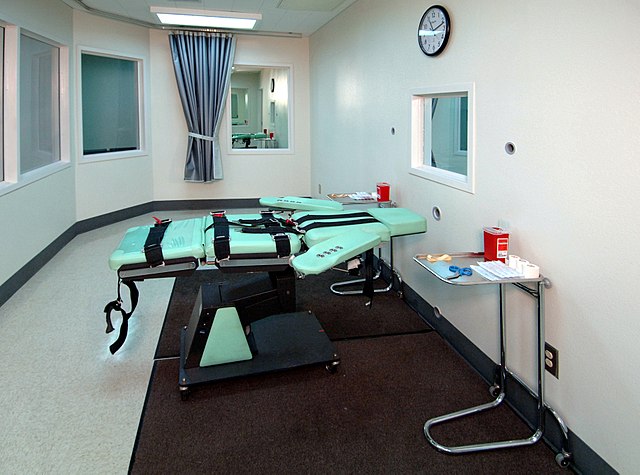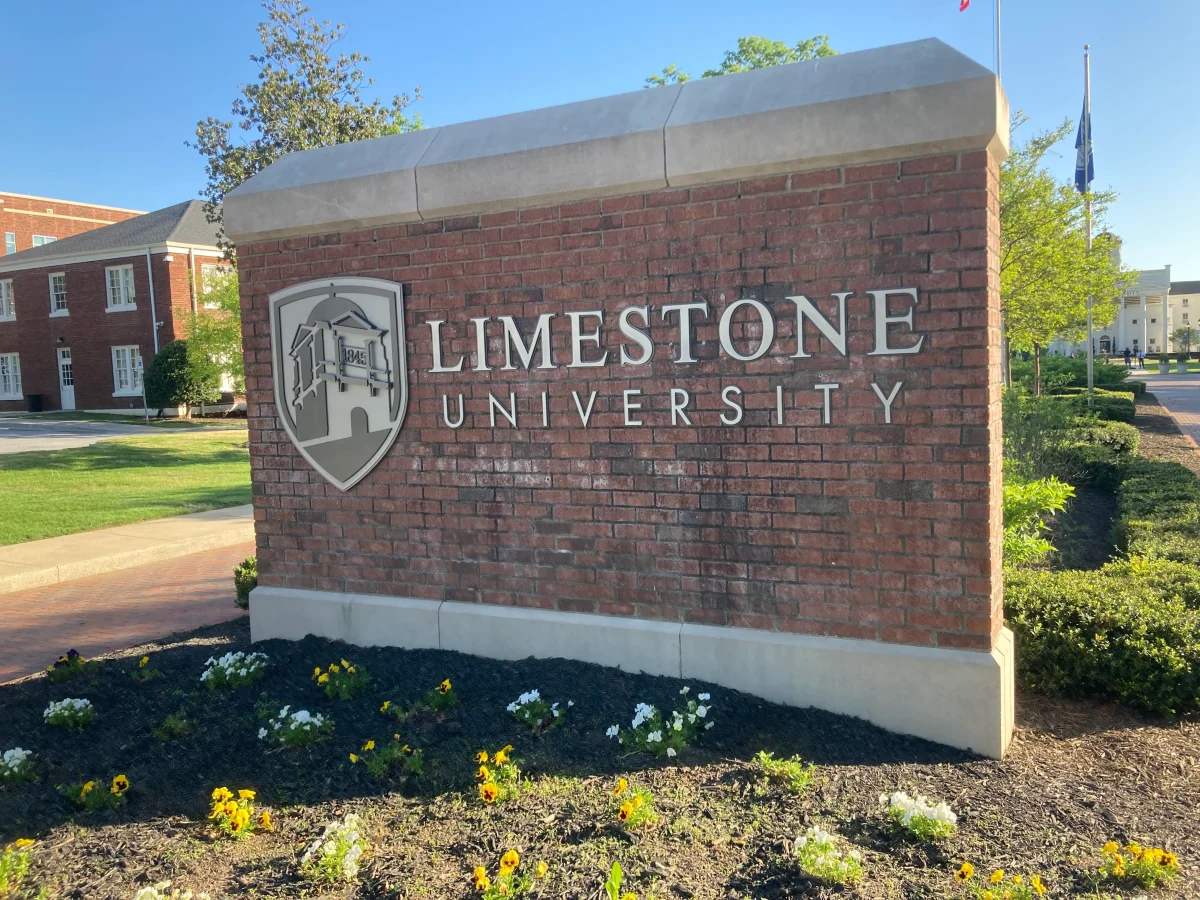Twenty minutes. Twenty minutes is how long he struggled for breath, and twenty minutes is how long it took for state officials to watch the life leave a body. Kenneth Smith’s last breath would be filled with pure nitrogen, a chemical toxic to humans and most certainly a lethal dose. The nitrogen that was released into the air during this execution posed not only a threat to the life of Mr. Smith but also to everyone who was in the room on this fateful day. But how did we get to this point of contention as a society? According to the United Nations, “Human rights are rights inherent to all human beings, regardless of race, sex, nationality, ethnicity, language, religion, or any other status.” What would lead to such a clear human rights violation in the United States, at which no one seems even to bat an eye? In this paper, you will learn about the tragedy of capital punishment in today’s general public and its past and future in the world we live in. Why, when, where, and how are questions that we, as humanity, should all be asking ourselves when it comes to the use of corporal and lethal punishment.
As a native South Carolinian, I have always had a certain pride in my home state, but, as I have aged, my blind love for my home has shifted towards recognizing the horrors that have historically been an integral part of South Carolina as an institution. An undeniable horror accepted by the general public is the use of capital punishment. Between 1718 and 2021, at least 684 people have been executed during the existence of South Carolina as a governmental body, according to the Death Penalty Information Center. 43 of these executions have occurred since 1976, once the state reinstated the death penalty thanks to the outcome of the case Furman vs. Georgia. This landmark Supreme Court case is not where the tragic story begins, but it is where many of the modern problems with the death penalty start.
In Furman vs. Georgia, the defendant was sentenced to death after falling and tripping in a burglary attempt, causing a firearm to go off and kill a resident of the home. William Furman was then sentenced to death, provoking an uproar over the “cruel and unusual punishment” of the situation at hand. Many considered this sentencing to violate the Eighth Amendment: “Excessive bail shall not be required, nor excessive fines imposed, nor cruel or unusual punishments inflicted.” The main argument by most of the justices was that individually, the infliction of the death penalty was only specifically cruel and unusual to Mr. Furman. However, some justices like William Brennan Jr. and Thurgood Marshall argued that it was representative of the truth that all uses of the death penalty were cruel and unusual. Racial bias, which was at the forefront of the Burger Court during the 1970s, also played a huge part in the discussion over whether the continued use of the death penalty could be considered constitutional. In turn, this led to a decision that all uses of lethal punishment were unconstitutional if “applied in an arbitrary or discriminatory manner.” This was, for lack of a better term, vague. Brennan and Marshall thought so, arguing that any use of punishment would allow criminals to recognize the impact of their actions.
Allowing the use of the death penalty to continue with restrictions just meant that some discriminatory cases still were able to slip through the cracks. Discriminatory can be defined as “the unjust or prejudicial treatment of different categories of people, especially on the grounds of ethnicity, age, sex, or disability.” In the words of former Attorney General Ramsey Clark, “It is the poor, the sick, the ignorant, the powerless, and the hated who are executed.” The lives of many of those awaiting trial within the clutches of our Justice Department are decided upon at the discretion of the 12 on the jury, without regard for its irreversible impact on the lives of many. Walter McMillian, the famous defendant in Bryan Stevenson’s Just Mercy, is a perfect example of how innocent people are often caught in the crossfire of revenge murder. As Stevenson eloquently put it, “Each of us is more than the worst thing that we have done.” Walter McMillian was a man who was an adulterer, a questionable father figure, and often caught up in the wrong place at the wrong time. Yet his 6 years on death row, during which he faced impending doom for a crime that he did not commit, it would seem that his conviction was a mistake. Mcmillan spent 6 years on death row as an innocent man, blamed for a crime that he was incapable of committing. However, focusing purely on McMillian’s innocence would also be a mistake. If the goal is deterrence from future crime, why is there no substantial evidence that the outcome of death row has decreased crime or murder in the United States? If the goal is revenge instead of rehabilitation, couldn’t it be considered more treacherous to face a life of imprisonment than a quick and easy release from this world after a heinous crime?
From a moral standpoint, everything we know about the death penalty is wrong. From this moment forward, I want to assume my standpoint as a human and a Christian. Christianity has always been a part of my life, but over the past few years, I have grown from a casual Christian to a devoted one. The lessons taught by Jesus Christ and his disciples are not only applicable to the issues of his era but modern day as well. His relevance to the issue of capital punishment is no different. Famously, Jesus remarked on the incredibility of laws meant to only offer revenge and punishment instead of rehabilitation. In John 8:7-11, he argues with the Pharisees by saying “Let he who is without sin throw the first stone.” If we look through the lens of the Christian faith, we see that Jesus Christ calls us to recognize the imperfection of our race. No human is perfect, so therefore it is immoral and hypocritical to in turn take away the life of another human being because of wrongdoing. This verse is a moment of comfort for me because it gives grace to those who don’t deserve it. In many ways, not only criminals but also the majority of Americans fail to recognize their sins before calling out others. In fact, in James 2:10, we must reconcile with the truth that “If you have committed one sin, you are guilty of all.” If the United States were to take the advice of Jesus Christ, our prison system would no longer focus on solely punishing the deeds of murderers and criminals but rather on trying to give them a life of rehabilitation. Too often in our current society, emphasis is placed on “Christian” values without respect for what the savior of the religion preached. Suppose more respect and attention were paid to what was preached by the supposed Messiah of American Christianity. In that case, it is possible that men like Walter McMillian would never have been wrongfully convicted. It is also true that the Old Testament holds accountable the unwarranted murder of individuals. One of the tenets of the Jewish and Christian faith is the Ten Commandments. In these commandments, we as Christians are called not to murder. If we believe that no sin is more evil than the other, we must continue to respect the lives of every sinner. It is also said in Matthew 7 “Do not judge, or you too will be judged, and with the measure you use, it will be measured to you.” Many of us nowadays fail to recognize the gravity of what Jesus is saying in this passage. If we are to uphold other sinners to the high standards of perfection and pureness, then we must be ready for the same rule to be applied to us by the most high. With cases like the death penalty, many Christians fail to focus on what should be important: improving on the situation that has already happened. Murder, theft, and all other types of sin are horrible and should be punished in our society. On the other hand, continuing to provide discourse and destruction through the professional murder of criminals does not fix the problem.
Forgiveness of those who committed such heinous crimes can also provide more comfort to the families who have been harmed. One example of this comfort is Tyler Trotter. Trotter’s mother, Barbara Rogers, was murdered in the early spring of 2020 with two other roommates. In a testament to his own personal strength, Trotter was able to forgive the man who killed his mother instantly. Trotter says, “Because forgiveness was given to me, I’ve learned that we have to forgive.” This kind of forgiveness can give Trotter the spiritual closure he needs without leading to any more harm being done in the community. Trotter’s story is not unique either. Mary Johnson, whose son was murdered at a party in 1993, was able to sit down with her son’s killer and tell him she forgave him. In an interview with the Washington Post, Johnson said “We have to forgive, we cannot become bitter.” In short, bitterness only leads to more conflict, more internal struggle, and more denial that releasing pain is better than holding onto it. It is often said that the beautiful is difficult. Yes, the strength needed to give a hug to the man who murdered her son is seemingly insurmountable. Yet, through this experience, Johnson was able to find peace in herself and truly begin to recover from the tragic loss of her son. Famously, Pope John Paul II was able to forgive his would-be assassin in 1981 and met with him on some occasions after the incident, per USA Today. In an attempt to show the power of forgiveness, the former Pope spent an hour with the man who would have murdered him, even gifting him a rosary.
Unfortunately, the act of killing isn’t the only problem currently with the use of capital punishment. It is often due to continued inaction by those in State government to follow through with the promise of death for inmates. Scott Dozier of Nevada was a perfect example of this case. Dozier would ultimately spend more than 14 years on death row for the 2002 murder of Jeremiah Miller, including 2 different failed executions. The murderer even attempted to waive his right to receive any more additional appeals to finally receive death, per Vice. In his 2019 interview with Vice, Dozier voiced frustration with how “as long as no one is being killed, they (the Nevada Corrections Department) are cool with that.” Days after his interview with Vice was conducted, Dozier would go on to hang himself in his cell using a bedsheet. While there is no question that the actions of Scott Dozier were heinous and disgusting, it is clear that the continued treatment of members of death row is inhumane.
Unfortunately, Scott Dozier’s case is similar to others across the United States. South Carolina alone has 36 current members on death row, with no executions being enacted in the state since 2011. In truth, not killing these inmates is having large amounts of mental effects on the prisoners who were promised to die. Because of the lack of executions in the state, South Carolina has now turned to legalizing other methods than lethal injection to complete executions. According to the Associated Press, Governor Henry McMaster’s offices have pushed the State Supreme Court to throw out previous cases determining that the firing squad and electric chair are cruel and unusual punishment.
Yet in the state of South Carolina and many others, there is a problem seeing the true issue with calling some methods cruel and unusual and others not. There is a lack of transparency, a lack of constitutionality, and a lack of human compassion in any use of the death penalty whatsoever. In my interview with Ms. Vann, an Investigator for the Georgia State Capital Defender’s Office, she noted how little power the defendants truly had against a system that was “powerfully stacked against them.” Ms. Vann also noted how “subjective” and “inexperienced” jurors could be when deciding whether a member of the community could need consideration for the death penalty. It is easy to get caught up in the horrors that men and women who are in consideration for the death penalty commit. However, we as a society must not look past their basic human condition and the truth that they are all still human at the end of the day. Because of the lack of transparency in states like South Carolina, many inmates are left unaware or unsure about what is going to be put in their bodies during executions.
While it is true that efforts have been made to limit and eliminate racial discrimination within the use of corrections facilities, it is hard to argue with the numbers still influencing the current state of our prisons and punishment systems. In South Carolina alone, more than half of the current inmates on death row are African American, compared to the 26 percent that make up the state’s population. According to the ACLU, African Americans are 18 times more likely to face capital punishment than white Americans. History can also tell us that the use of the death penalty has largely been based on race since the beginning of the United States’s history. In the 18th and 19th centuries in Tennessee, 13 counts for the use of the death penalty could be used against black Americans while only 2 counts could be used against whites. Neither is it a coincidence that Tennessee had at least 500 lynchings of African Americans in its history, according to the Death Penalty Information Center. If the state of Tennessee has had a disproportionate amount of executions involving African Americans in the past, it is difficult to believe that much has or will change in the use of the punishment in the current time. Our country’s army has also had a past of executing African Americans wrongfully. One story showed that “The Army convicted 110 Black soldiers of murder, mutiny, and other crimes in three mass trials where the soldiers were represented by just one officer who was not even a lawyer, Gabe Camarillo, the undersecretary of the Army, told The New York Times.” If one considers this story, it is easy to conclude that there has been a history of injustice within the system of capital punishment. While it would be one thing if the men in this event were rightfully convicted, there is no evidence suggesting that many of them were. According to the New York Times, “the Board has found that these Soldiers were wrongly treated because of their race and were not given fair trials,” said Secretary of the Army Christine Wormuth, who approved the board’s recommendation. “By setting aside their convictions and granting honorable discharges, the Army is acknowledging past mistakes and setting the record straight.” Unfortunately for the soldiers impacted by the tragedy, apologies made by the Army will never be able to give them the life that they had back. If there was the possibility for unfairness in this case, isn’t there an equal possibility of unfairness when deciding the life and death of other members of society? If those in the highest positions of our society and government are willing to admit the possibility of unfairness and subjectivity regarding the executions of their own citizens, then how can they be trusted to make decisions about taking away human life?
Luckily, this trend may not last forever. Currently, about 54 percent of Americans support the continued use of the death penalty, down from about 80 percent in the 1990s. While Republicans’ support for the use of capital punishment has been steady, the Democrat percentage of the population has decreased in their support for the level of punishment. Human Rights organizations have consistently been working towards passing legislation to make the use of capital punishment illegal. 23 states in the US have currently abolished the use of the Death Penalty, the highest number in the country’s history. Yet making the death penalty illegal may prove to be impossible without the help of a Supreme Court case. While some states are always more lenient than others regarding this method of punishment, the majority of states will need federal enforcement to ensure no death penalty across the United States fully.
Brothers, sisters, fathers, mothers, and many others have been sent to their deaths by the United States government. Because of moral, ethical, and spiritual problems, the death penalty has no place in modern society.



















